July

Professor Mike Toole provided a global context as to why the emergence of the Delta variant was so concerning in a commentary published in The Conversation.
The World Health Organization estimated that Delta was 55 per cent more transmissible than the Alpha variant, which was itself around 50 per cent more transmissible than the original Wuhan virus.
Delta emerged quietly in the Indian state of Maharashtra in October 2020, and by April infections in India were peaking at close to 400,000 daily cases.
Delta spread rapidly to become the dominant strain in the UK, Russia, Indonesia, Vietnam, Australia and Fiji.
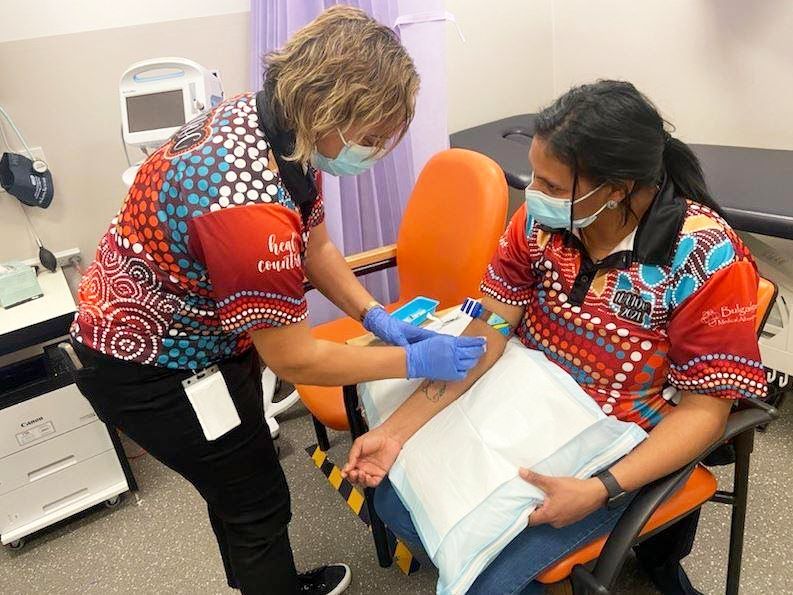
Burnet Institute launched a new project using integrated and culturally appropriate strategies to help eliminate hepatitis C infection in Aboriginal communities.
Aboriginal people represent around eight per cent of Australians living with chronic hepatitis C infection while comprising only three per cent of the population.
The partnership with Bulgarr Ngaru Medical Aboriginal Corporation, and the Australasian Society for HIV, Viral Hepatitis and Sexual Health Medicine (ASHM) brings together vital components that have been shown to increase access to life-changing hepatitis treatments.
The mandating of masks during Melbourne’s COVID-19 second wave in July 2020 was the single-most important control measure and “turned the epidemic around”, new world-leading Burnet Institute research showed.
The study, published in the journal PLOS ONE, highlighted the effectiveness and critical importance of masks as a key tool to prevent community spread of the highly infectious Delta variant in Australia and globally.
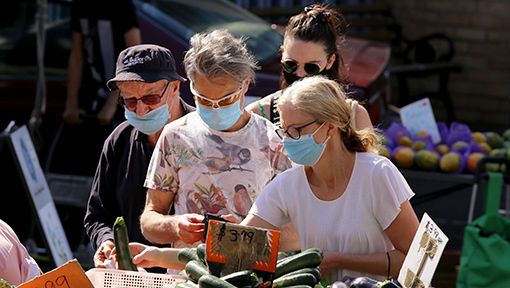
New Burnet modelling demonstrated that until Australia achieved extremely high rates of vaccination coverage, public health restrictions would be essential to provide effective options for control of COVID-19 in the community.
Burnet’s COVASIM modelling of long-term control strategies showed that even with high vaccine coverage thousands of deaths could occur if public health responses are not initiated to help control outbreaks, and restrictions would need to be maintained or re-imposed in situations where infections are continually introduced into the community.
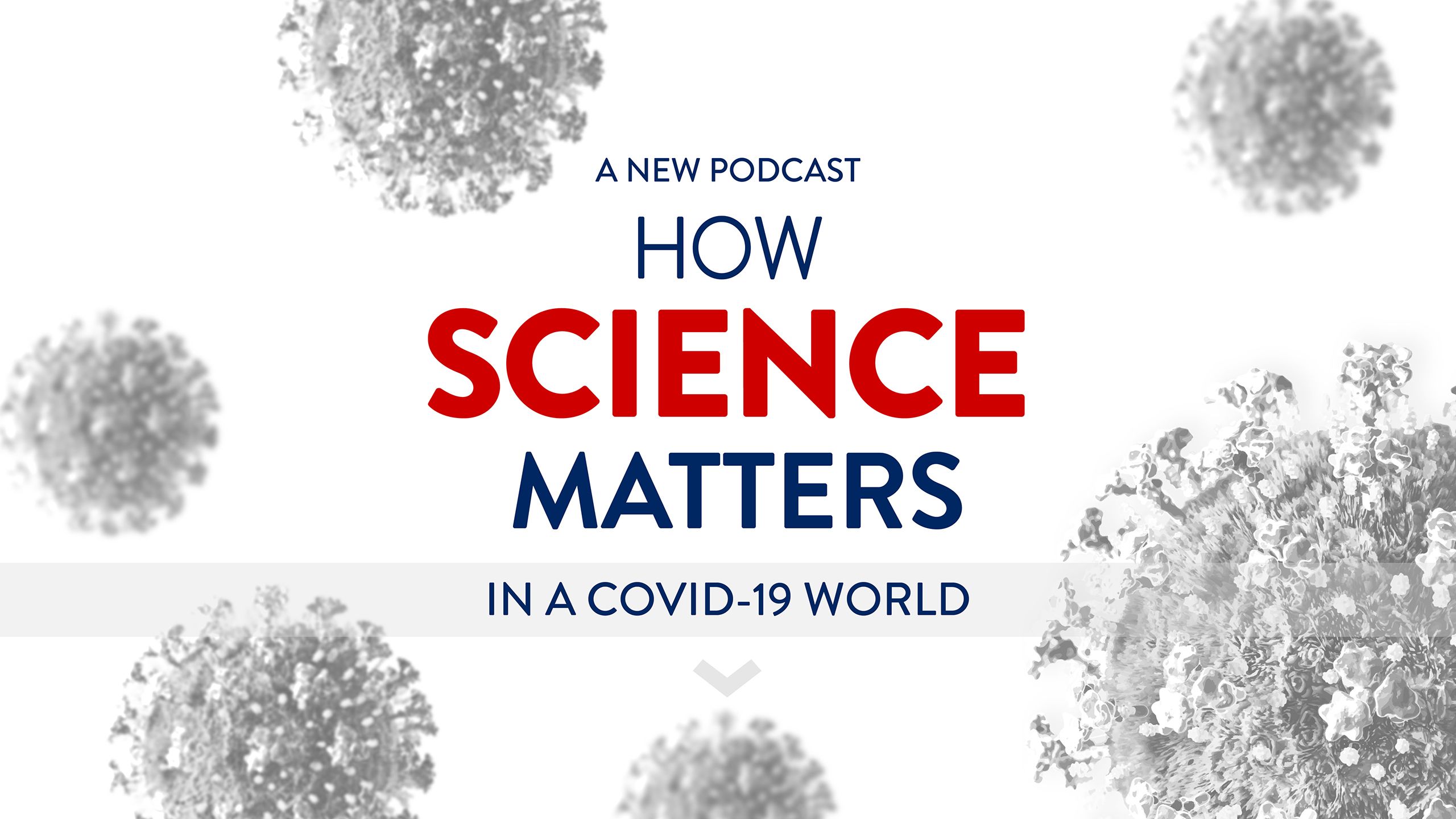
August
Burnet launched its How Science Matters podcast series to help listeners make sense of the science surrounding the COVID-19 pandemic.
The eight-part podcast series features some of Australia’s visionary scientific thinkers, taking listeners through what keeps the experts awake at night as they grapple with a pandemic – and how science is playing a leading role in shaping our response.
Each thematic episode is co-hosted by former ABC Radio journalist Tracy Parish and Burnet Director and CEO Professor Brendan Crabb AC, one of the best minds in infectious diseases and global health today.

The Burnet majority-owned company, 360biolabs, signed an agreement to be purchased by BioAgilytix Labs, LLC (BioAgilytix), a leading global contract research laboratory headquartered in the USA.
Burnet Director and CEO, Professor Brendan Crabb said it was a transformational achievement for the Institute and welcomed the visionary strategic focus of BioAgilytix to build on 360biolabs’ world-class virology and immunology expertise.
September
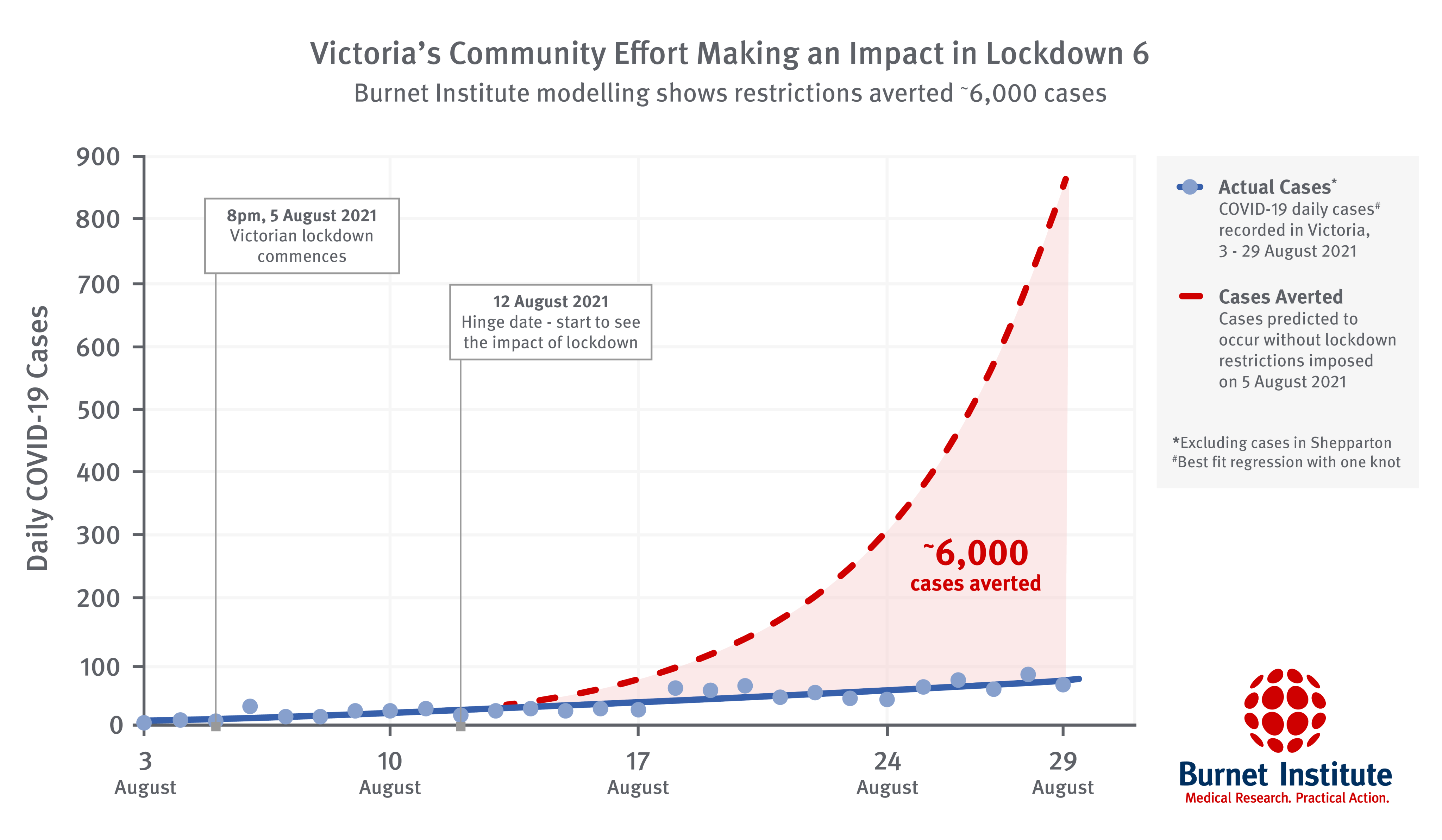
Victoria’s community adherence to COVID-19 lockdown restrictions during lockdown 6 prevented around 6,000 additional cases of the virus from emerging in August 2021, Burnet Institute modelling found.
In his daily COVID-19 update, Victorian Premier Daniel Andrews said the measures, imposed in Melbourne since 5 August 2021, had significantly reduced the impact of the Delta variant outbreak.
“The Burnet Institute has estimated that what we’ve all done, what we’ve all given these last four weeks, has basically prevented around 6,000 cases of this virus.”
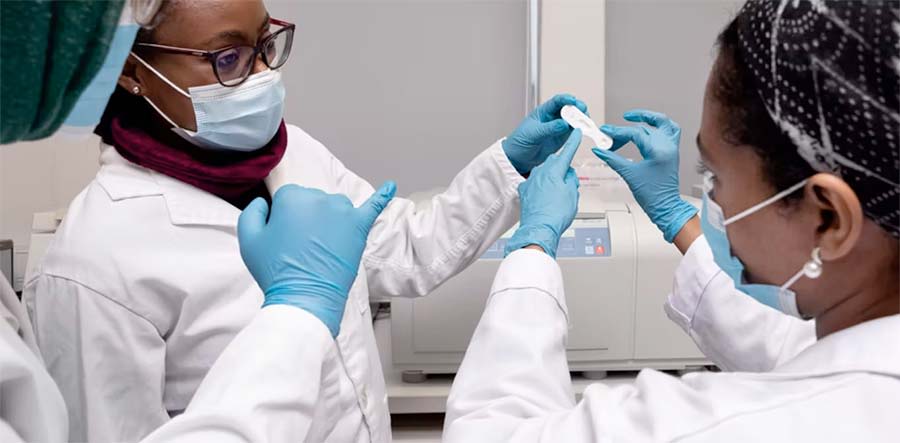
Burnet Senior Research Fellow and Head of the HIV, Inflammation and Microbiome Working Group Dr Lindi Masson provided an update on trials of a new test to diagnose vaginal inflammation that could help reduce risk of HIV infection.
Similar to an off-the-shelf pregnancy test, the prototype was chosen because of its low technology and low cost potential, and because it can be used quickly and easily at the point of primary care or as part of home care.
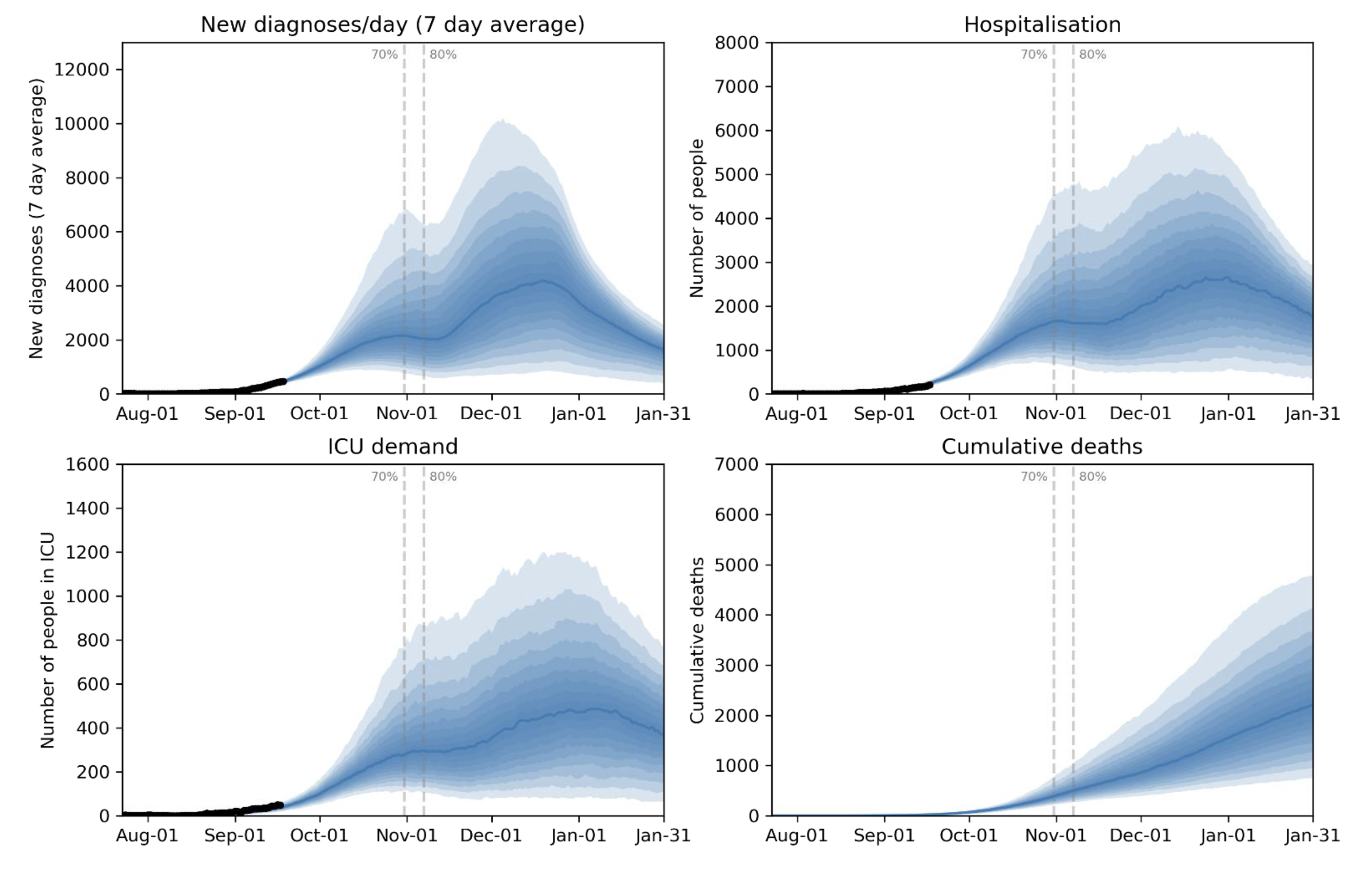
Burnet’s COVID-19 mathematical modelling was commissioned by the Victorian Government to inform the Victorian Roadmap.
The COVASIM model was used to simulate options for easing of restrictions over the October-December period. Model inputs included data on demographics, contact networks, workforce composition, contact tracing systems and age-specific vaccination rates.
As well as options for easing restrictions, additional policies around vaccine allocation and testing were examined to determine potential approaches to further reduce the epidemic peak.
October
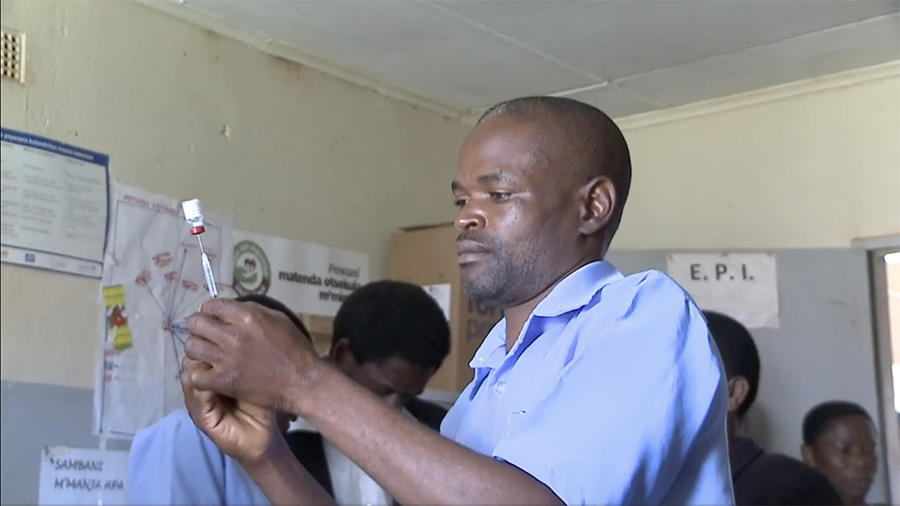
The World Health Organization (WHO) announced its recommendation of the widespread use of the RTS,S malaria vaccine for children in malaria-endemic areas.
Burnet Deputy Director and Head, Malaria Immunity and Vaccines Group, Professor James Beeson described it as a “historic moment”.
Professor Beeson said the WHO’s recommendation was based on pilot implementation of the RTS,S vaccine in Kenya, Ghana and Malawi. Running since 2019, the pilot showed vaccination was safe and effective at preventing severe illness in 800,000 children.
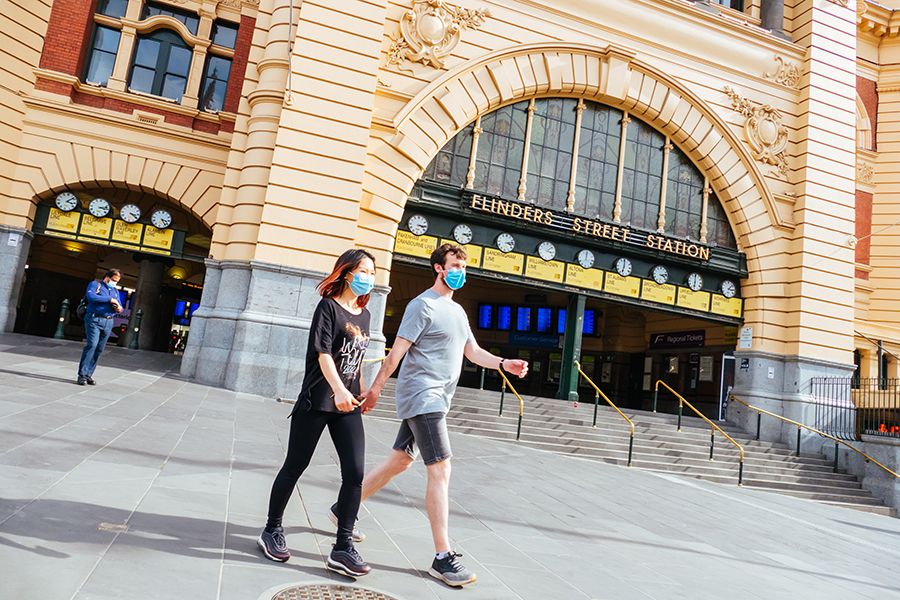
In a commentary for The Conversation, Professor Mike Toole and Professor Mark Stoové took a look at what lay ahead for post-lockdown Melbourne, as the city cautiously opened up.
The previously announced roadmap was modified and some restrictions eased ahead of time, with modelling by Burnet in mid-October providing more optimistic and reassuring estimates of the impact of reopening on health services than earlier modelling.
Readers were also given the opportunity to take a deep dive into Burnet’s COVID-19 modelling to gain a greater understanding of the complex science that has helped inform and shape Australia’s COVID-19 pandemic response.
November
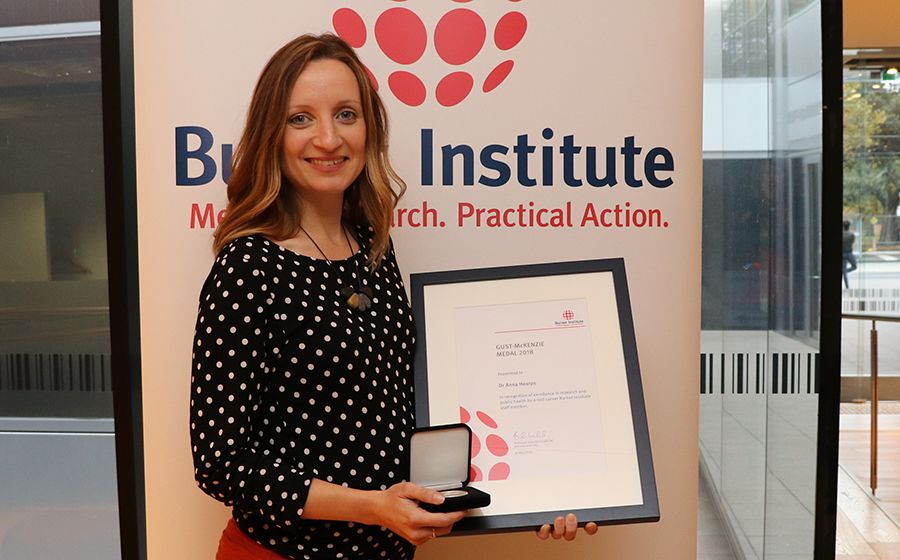
A Burnet Institute project to address a neglected problem in HIV cure research was awarded a National Health and Medical Research Council (NHMRC) Ideas Grant.
The research, led by Dr Anna Hearps, Burnet Institute Deputy Program Director, Disease Elimination, focuses on a poorly understood area – the ability of HIV to infect a type of immune cell called macrophages.
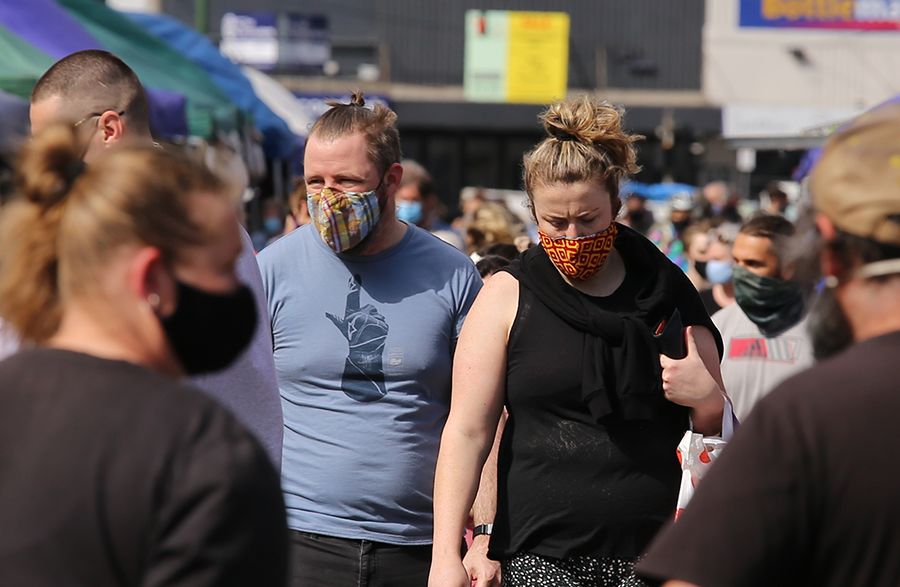
The World Health Organization declared the Omicron variant of SARS-CoV-2 a new variant of concern.
Allowing Omicron to run its course in the community in the expectation that it will prove to be less virulent than Delta would be a serious mistake, Burnet Deputy Director, Associate Professor David Anderson warned.
“That is wishful thinking of the highest order, a terrible, terrible idea. There is absolutely no evidence that it’s less virulent.”
December
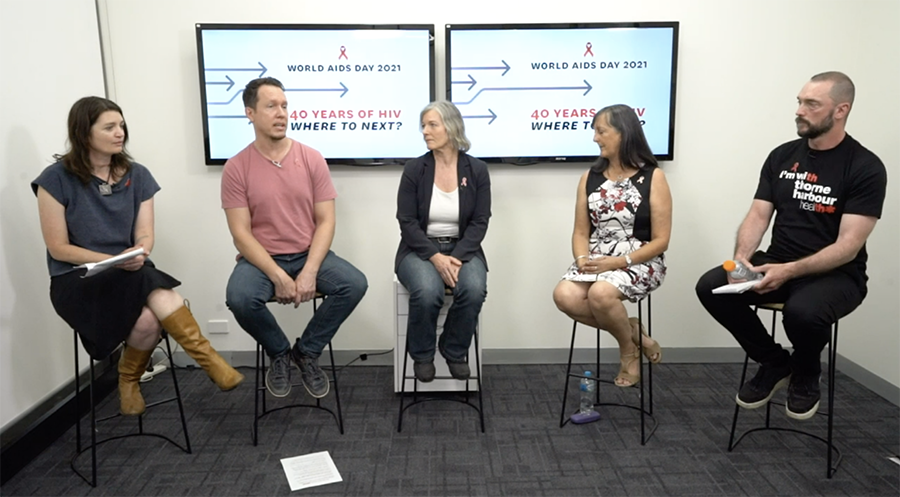
40 years of HIV – Where to next? was the theme for World AIDS Day 2021.
Official events in Victoria commenced with an announcement from Health Minister Martin Foley that Victoria’s HIV notifications were at their lowest rates in 20 years.
However, while treatments and quality of life have improved enormously over the last 40 years, stigma remains.
Members of Living Positive Victoria’s (LPV) Positive Speakers Bureau shared their personal experiences with stigma in a World AIDS Day panel discussion.
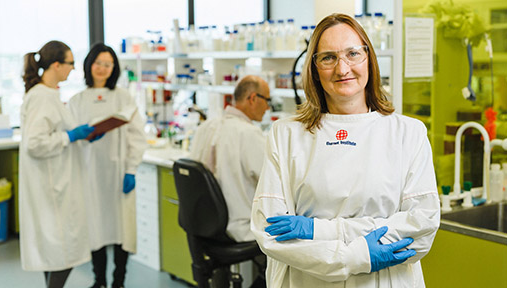
Burnet welcomed the announcement of mRNA manufacturing capacity to be based in Victoria, which will play a vital role in future pandemic preparedness.
Burnet Institute vaccine expert, Professor Heidi Drummer said the landmark decision to base Moderna’s new mRNA vaccine manufacturing facilities in the state will provide a major boost for vaccine security in the region.
“The co-location of this facility with world-leading research organisations and researchers will be transformative for how our discoveries are translated to improve health.”

As COVID-19 cases rose to record highs in NSW, Professor Brendan Crabb spoke to The New Daily, recommending “non-restrictive” interventions to combat the Omicron variant.
“We know enough to know the situation in the next month or three is going to be worse with Omicron than it was with Delta,” warned Professor Crabb.
“That’s not reason to panic, but it’s reason to respond. It’s not reason to fear, but reason to wise up.”
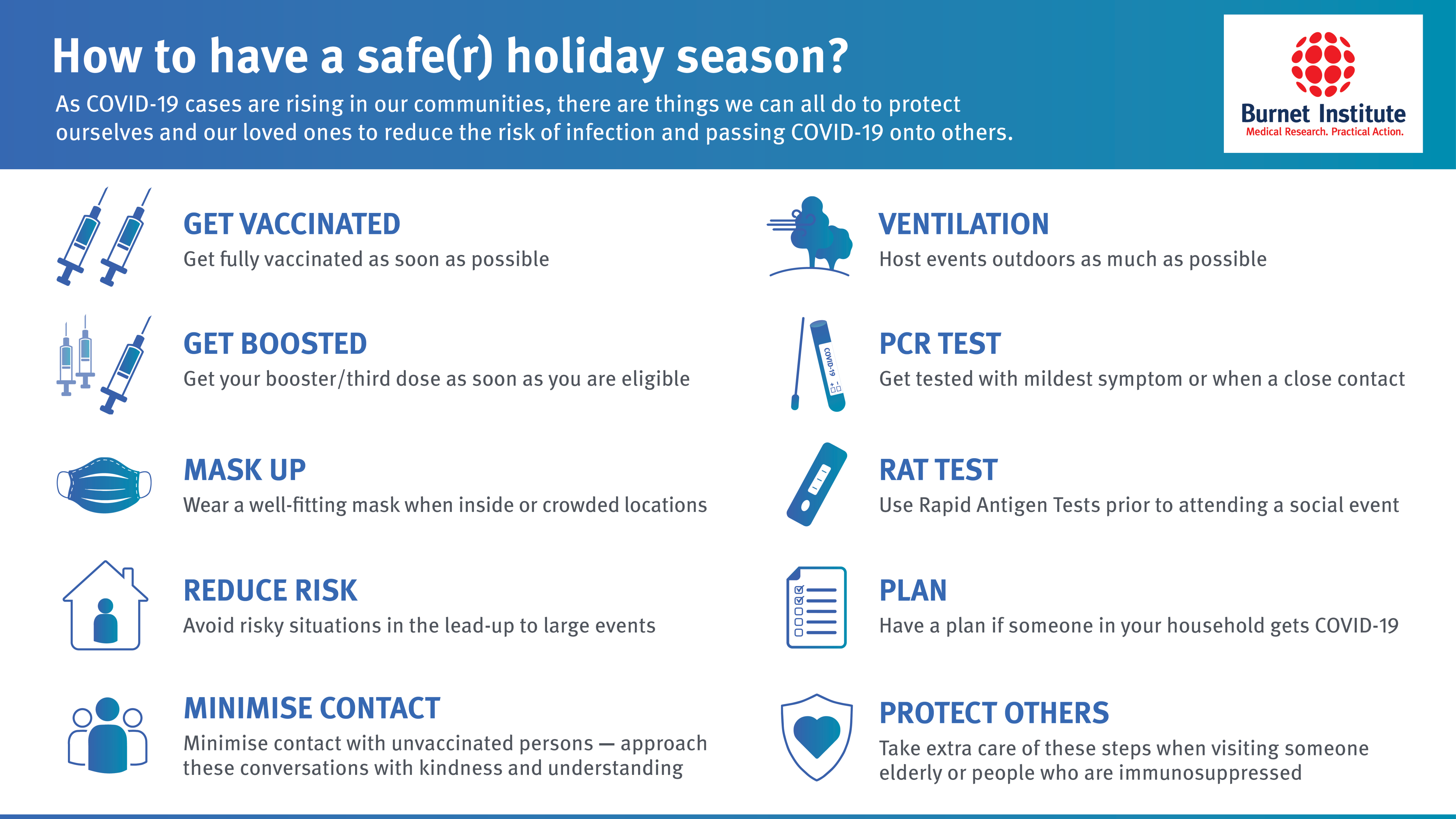
With COVID-19 cases increasing across Australia, Burnet's public health research experts provided the community with 10 THINGS TO CONSIDER to have a safe[r] festive season.
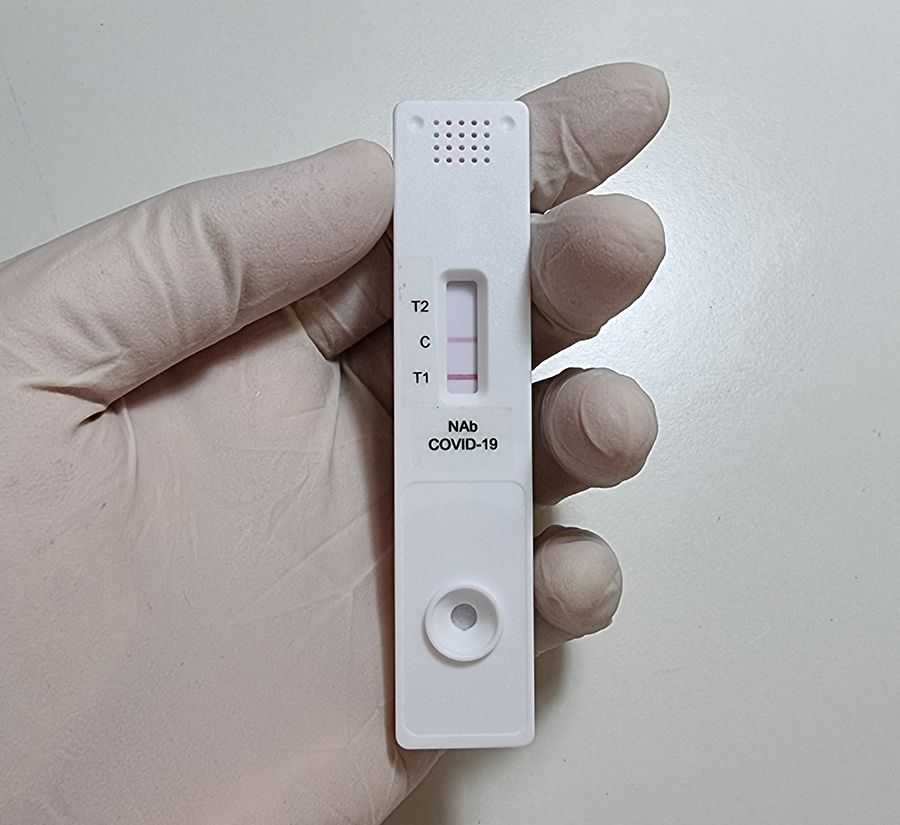
A prototype of the NAb test
A prototype of the NAb test
The test, which provides a readout from a fingerprick of blood in less than 20 minutes, is the first of its type globally and may also be useful to indicate when a vaccine booster may be required.
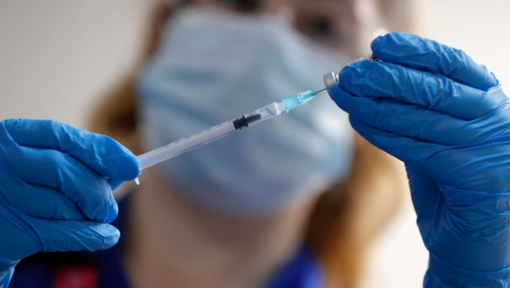
Burnet Institute receives $3 million dollars in Victorian Government funding to further progress vaccine development and provide valuable new therapeutics protections against COVID-19 variants.
The funding will support two initiatives – Dimeric IgA therapeutic monoclonal antibody technology and Potent biologicals for the prevention and treatment of COVID-19 - both among a pipeline of Burnet COVID-19 therapeutic technologies.

